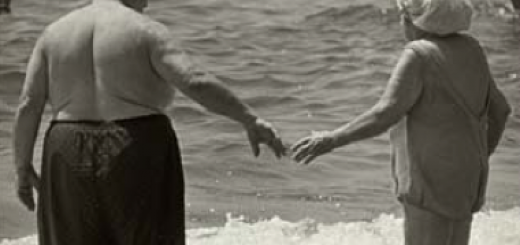The hopes and fears of all the years……
Yesterday we looked at the power of fear and I left you with this promise –
And tomorrow, we’ll see if God can make any difference.
Let’s start with the Israelites. What difference did God make to them?
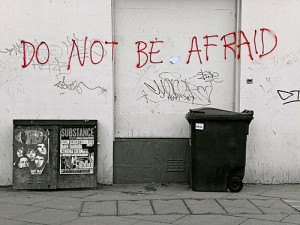 When appointing judges, Moses says ‘Do not be afraid of anyone, for judgment belongs to God.’ (Deuteronomy 1:17). Do not be afraid of doing the right thing, because God is with you. God will guide you and give you the courage to reach the right judgement. You do not need to be afraid of what anyone might think or say or do. All that matters is that God is with you.
When appointing judges, Moses says ‘Do not be afraid of anyone, for judgment belongs to God.’ (Deuteronomy 1:17). Do not be afraid of doing the right thing, because God is with you. God will guide you and give you the courage to reach the right judgement. You do not need to be afraid of what anyone might think or say or do. All that matters is that God is with you.
When Moses is urging the people to enter the Promised Land, he says ‘Do not be afraid; do not be discouraged.’ (Deuteronomy 1:21) God has gone ahead of you and prepared the way. God has good things in store for you. God is giving you the land. Don’t let fear hold you back. Don’t let fear keep you in your seat. Get up and go for it!
When the hearts of the Israelites are melting with fear, Moses says ‘Do not be terrified; do not be afraid of them. The Lord your God, who is going before you, will fight for you, as he did for you in Egypt, before your very eyes, and in the wilderness. There you saw how the Lord your God carried you, as a father carries his son, all the way you went until you reached this place.’ Don’t be terrified because the Lord your God is going before you. Don’t be afraid because God will fight for you. Remember how he’s done it before – in Egypt and in the wilderness. He carried you in his arms like a father carries his son (like Rob Bell carries his son through the storm in his moving NOOMA video ‘Rain‘). He’s done it before and he’ll do it again, so don’t be afraid.
When the Israelites pass through the land of the descendants of Esau, the people are afraid of them because they know that God is with the Israelites and that God is powerful. God is on the side of the Israelites and God has not ever let them down (even when the Israelites struggle to remember this for themselves). Nothing and no one can touch them.
The same with Sihon, king of Heshbon – ‘This very day I will begin to put the terror and fear of you on all the nations under heaven. They will hear reports of you and will tremble and be in anguish because of you’ (Deuteronomy 2:25).
And Og, king of Bashan – ‘Do not be afraid of him, for I have delivered him into your hands’ (Deuteronomy 3:2)
And finally, when Moses is preparing Joshua to take over from him, he says ‘Do not be afraid of them; the Lord your God himself will fight for you’ (Deuteronomy 3:22). You have nothing to fear. God is on your side. God will always be with you. He will fight for you.
Here speaks a man who knows what he is talking about. He has had to face his own fears. Back at the start, he had to overcome his own inadequacies and fears and speak out on behalf of the Hebrews. He had to lead an enormous group of people into unknown and dangerous territory. He was responsible for finding them food and water. He had to put up with their grumblings and with the anger of God that burned against them when they got it wrong (which they did frequently). He had to lead them into battle when the odds were never in their favour.
He was no stranger to fear.
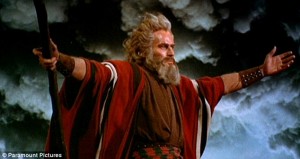 In the film ‘Exodus’, which we went to see yesterday, there’s a wonderfully inspiring scene, when Moses is standing before the masses on the shores of the Red Sea. They are caught between a rock and a hard place, as the saying goes – with the Red Sea before them and the Egyptian army advancing towards them.
In the film ‘Exodus’, which we went to see yesterday, there’s a wonderfully inspiring scene, when Moses is standing before the masses on the shores of the Red Sea. They are caught between a rock and a hard place, as the saying goes – with the Red Sea before them and the Egyptian army advancing towards them.
This is the end. There is no hope. There is no way out. They are drowning in fear and despair.
And Moses stands before them with his arm in the air and shouts in a wonderfully booming voice with and epic soundtrack in the background –
‘Do not be afraid. God is with us.’
He had me convinced. He starts to wade out into the receding waters and the people follow him. Whether they trust God or whether they trust the God they see in Moses and through Moses, they find a way to trust. They begin to believe in a way out. They have been thrown a lifeline. When they are drowning in fear and despair, they have been thrown a lifebuoy of hope (makes more sense to me as a symbol of hope than an anchor by the way).
I think that’s it. That’s the difference God can make. Fears drive out hope and when all hope is lost, then there is no way to carry on. Then we need hope. We need a lifeline. We need to trust in a way out. We need to believe that whatever we are going through will come to an end. And most of all, we need to have faith that we are not alone.
Fear makes us feel isolated. We are all alone. No one can help. Nothing can make a difference.
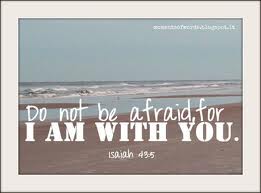 But in my life, God has made that difference. God has given me the confidence to carry on because I believe I am not alone. Don’t ask me to prove it. I can’t. I can’t prove the existence of God – that’s why it’s called faith. In the depths of despair, I have clung on to a glimmer of hope. I have held onto God’s promises and his words and stories such as these that show that through the ages, people have trusted in God and he has not let them down. That doesn’t mean things always end up in success and victory (seemingly) or happily ever after, but hope is not extinguished and our spirit is not crushed and we find a way to carry on and the resilience to bounce back…….hope springs eternal and all that.
But in my life, God has made that difference. God has given me the confidence to carry on because I believe I am not alone. Don’t ask me to prove it. I can’t. I can’t prove the existence of God – that’s why it’s called faith. In the depths of despair, I have clung on to a glimmer of hope. I have held onto God’s promises and his words and stories such as these that show that through the ages, people have trusted in God and he has not let them down. That doesn’t mean things always end up in success and victory (seemingly) or happily ever after, but hope is not extinguished and our spirit is not crushed and we find a way to carry on and the resilience to bounce back…….hope springs eternal and all that.
At Christmas, we are reminded of Emmanuel – God with us – and I love the line from ‘O little town of Bethlehem’ that says ‘the hopes and fears of all the years are met in him tonight’. It happened on the shores of the Red Sea. It is happening in my life today. And at all points in between.
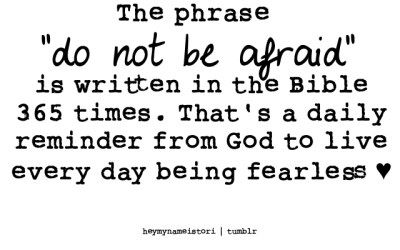 Finally, a word from Jordan. Remember all the fears that he battles with. In the final scene of the film, Moses is an old man travelling in a cart with the tablets of stone and he glimpses the God character (a young boy) walking alongside. Jordan turns to Andy and says ‘Dad, is that a metaphor for God always watching over us?’ I hope and pray that he learns to discover the reality of that metaphor for himself.
Finally, a word from Jordan. Remember all the fears that he battles with. In the final scene of the film, Moses is an old man travelling in a cart with the tablets of stone and he glimpses the God character (a young boy) walking alongside. Jordan turns to Andy and says ‘Dad, is that a metaphor for God always watching over us?’ I hope and pray that he learns to discover the reality of that metaphor for himself.
‘Do not be afraid. God is with us.’
